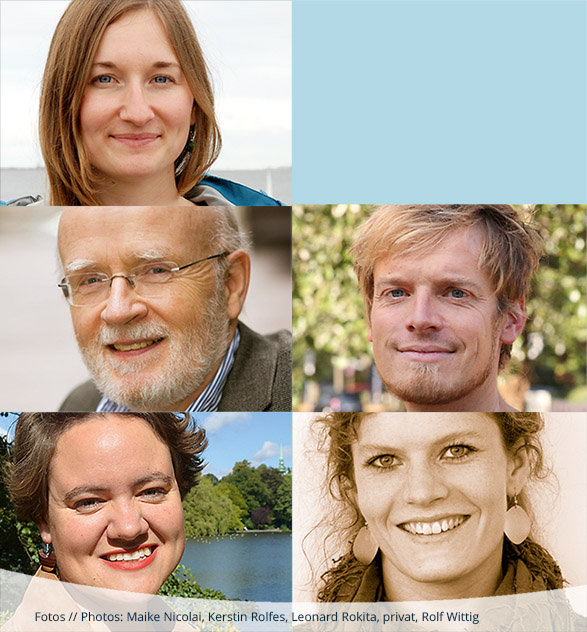
Personal statements
Frederike Böhm | Department of Philosophy, Kiel University
I like to follow the concept “reduce – reuse – recycle” when it comes to consumption: borrowing, sharing or buying second-hand are often good alternatives to purchasing new things, the production of which causes additional carbon dioxide emissions and use resources. Moreover, I can easily live without animal-based foods – another way to reduce greenhouse gas emissions and at the same time reduce the demand for threatened fish stocks. For the future, one of my intentions is to consume less overall and to try harder to avoid waste. That is also a step towards tackling the additional challenge of plastic in the ocean.
Prof. Dr. Hans-Otto Pörtner | Alfred Wegener Institute, Bremerhaven
If you focus on the consequences of climate change in your work as a scientist, it is hard to exclude these aspects from your day-to-day lifestyle. I try to avoid emissions as best I can. Buying clean power or wind gas at my home, using the bike or public transport for regular journeys or driving a car that is nominally powered by wind gas are among present options for people living in Germany. But the number of options is still too limited. This illustrates that the structural transformation of our cities and communities is not happening fast enough to facilitate a daily life for all that follows the rules of sustainability. Maybe politics has not realised yet how urgently we need to reduce our emissions and even extract carbon dioxide from the air in order to reach our long-term climate goals and to avoid dangerous impacts of climate change.
Dr. Stefan Königstein | University of Bremen
It was amazing for me to see how present the issue of climate change is to the people of northern Norway. Whether fishermen, hotel owners or mountain tour suppliers, every person I interviewed was able to contribute to the observation of long-term ecological changes – be it the retreat of the winter snow cover, alterations in precipitation or the changing distrubution of fish, seabirds, trees and reindeer. It was exciting to see that many of these observations are clearly ahead of science – much of it was published much later, or not at all, in the scientific literature. I think we would benefit greatly if we incorporated this knowledge much earlier, even in the conceptual phase of research projects.
Dr. Martina Stiasny | Department of Economics, Kiel University
With my research I am aiming to answer questions with relevance to society and conservation. Ocean and climate protection are some of the most pressing problems of our time. Solutions need to work on many different levels, socially, ecologically and economically. It is therefore imperative to include stakeholders as early as possible and to include their interests without losing sight of the aim of conservation. Because of this I purposefully work with ecologists and economists in order to shape fisheries management sustainably even in times of global change.
Dr. Lena Jakob | Alfred Wegener Institute, Bremerhaven
The message of the Paris Climate Agreement is clear: in 2050 emissions per capita should be limited to less than one ton of carbon dioxide (CO2) equivalents. Today, the average consumer in Germany emits 11.63 tons of CO2 equivalents. So what can I do to minimize my carbon footprint? The German Federal Environmental Agency provides a CO2 calculator (www.co2-rechner.de). Here the factors heating, electricity, mobility, nutrition, consumption and public emissions are considered. I end up with an annual emission of 9.03 tons of CO2 equivalents. Although this is 22 per cent less than nationwide average, I am still miles away from a climate-neutral life. My conclusion: without serious political measures, I cannot manage to live a climate-neutral life. But the CO2 calculator showed me, that I have a large individual scope of action in order to get closer to a climate-neutral life.
NEXT SECTION: Learn More